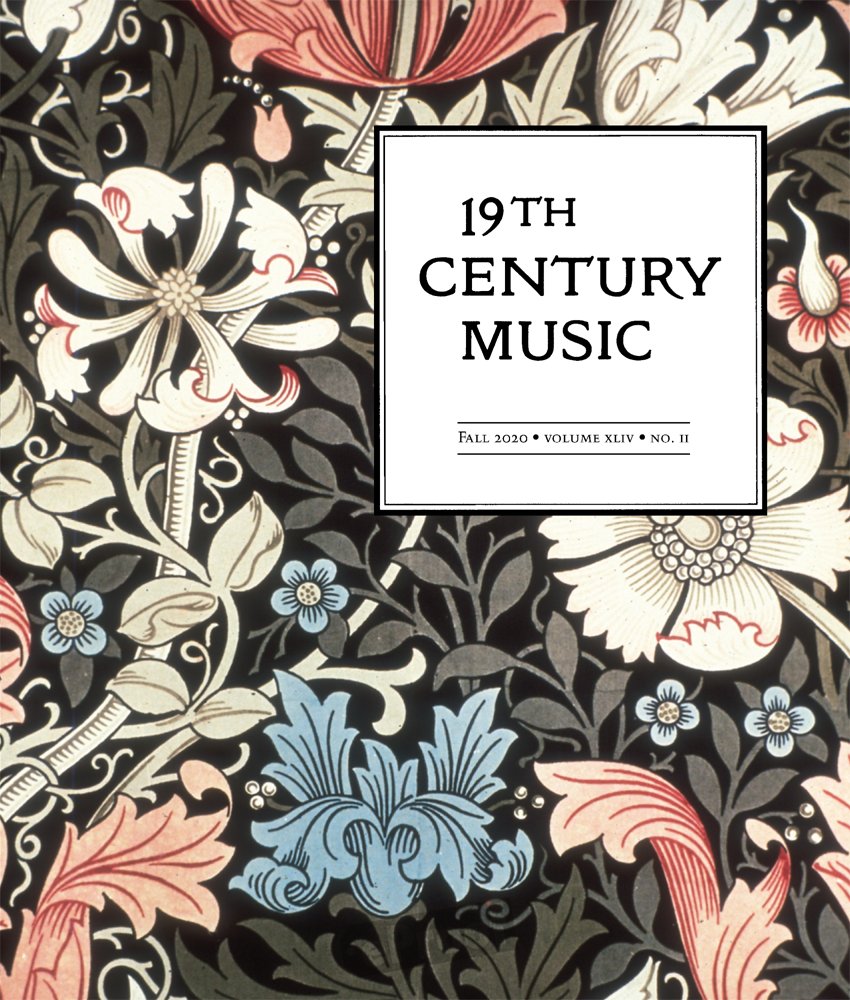By Dr. Joanne Cormac, guest-editor of 19th-Century Music‘s new special issue “Music and Biography.”

On the day the great piano virtuoso and composer Franz Liszt was born it was reported that gypsies camping nearby saw a comet in the sky. They interpreted it as a sign that a “great one” had been born. When the “devil’s violinist” Niccolò Paganini began violin lessons, his mother, Theresa had a vision of him playing at a theater in flames next to the devil who had come for Paganini’s soul. As a child, Chopin had an extreme sensitivity to music, weeping whenever he heard it and had to be restrained with difficulty.
Biography has long responded to readers’ appetites for stories about creative genius. The genre feeds a shared and longstanding desire to come close to genius, savoring the details of the lives of great individuals. Biography caters to a fascination with the seemingly mystical creative process, offering the reader the opportunity to marvel at stories of unfathomable feats. And a whole host of myths, like the ones mentioned above, have been passed down through biographies to satisfy these desires.
It is precisely biography’s attractions that have kept it hovering on the fringes of critical acceptance. These features include not only the genre’s tendency to mythologize but also to venerate the lives of individuals, glossing over unsavory details. This latter tendency is particularly pervasive in 19th-century biography (often labelled hagiography), but its hallmark can also be found in more recent examples. A genre which deals in narrative, in which gossip and rumor are central source material, and which may even delve into the realms of fiction, will always be controversial.
Read 19th-Century Music‘s special issue on music and biography for free for a limited time.
Of course, not all biographies deal in myth and gossip. There are many examples of rigorously researched scholarly biographies, whose authors attempt objectivity and scrutinize source material. And indeed, there are many examples of biographies written in the 20th and 21st centuries that attempt to atone for the mistakes of the past, correcting the historical record, busting the myths. But there will always be a relationship between author and subject that will affect the author’s reasons for writing and the approach they take to research and writing. The genre requires a narrative. It requires the author to make decisions about how to piece together the events of a life into a satisfying whole, often imposing causal relationships between events that may not have been related in reality. In most cases, the genre requires the author to grapple with the relationship between life and work. How and at which points does the work fit into the story? Does the life influence the work and vice versa? And how does the author deal adequately with the work without neglecting the life? This latter question is sometimes resolved by the “life and works” approach taken by many biographers of musicians, which artificially separates the two.
Our special issue on music and biography explores some of these fascinating tensions within the realm of 19th-century music. Indeed, 19th-century music is an excellent place to begin exploring some of the challenges and possibilities surrounding the study of musical biography. The 19th-century saw a new fascination with the self as a literary subject, leading to a rise in autobiographical writing. Autobiographical music is also synonymous with the period. Many composers began experimenting with programmatic titles and notes, as well as with rhetorical devices and structures that seem to suggest a protagonist’s journey. All of this inspired a new way of listening to music as a form of autobiography.
The special issue draws on biography’s relationship with 19th-century music in many forms. It examines some of the biographical writing of the period, exposing common myths and tropes. It explores the relationships between authors and subjects, and the effects of biographical writing on the reception of composers and their works. It also considers the relationship between biography and musicology: sometimes uneasy bedfellows that have nonetheless long been intimately intertwined. All of this, brings together some of the challenges and possibilities offered by biography, hopefully inspiring new discussions on how we might write biographies in the future.
